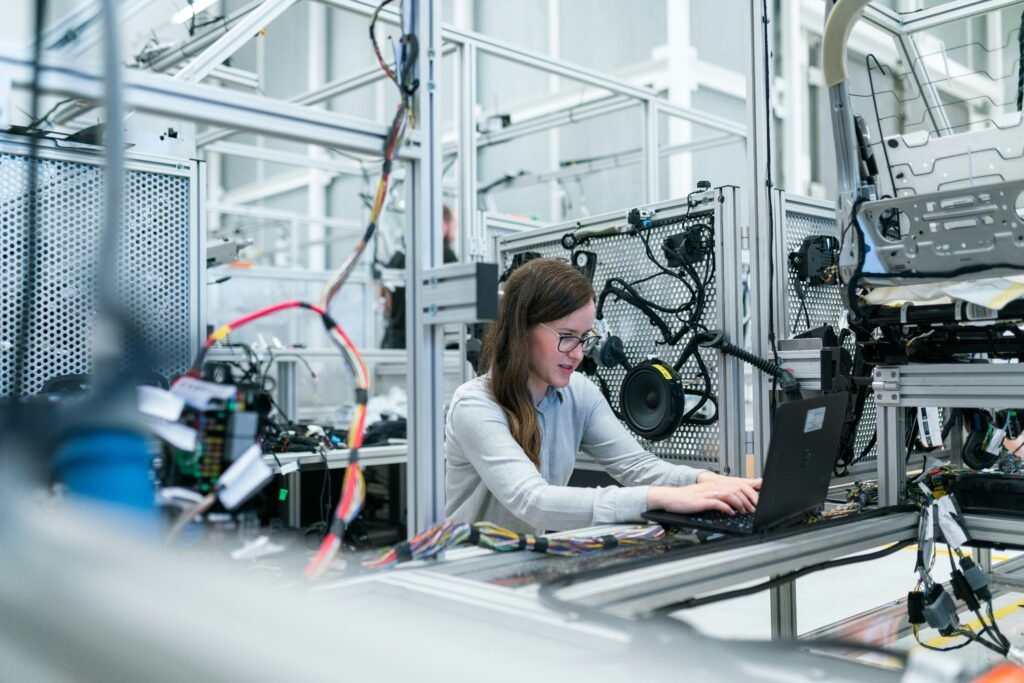
Mitsubishi Motors once played a prominent role in China’s automotive manufacturing sector through its joint venture with Shenyang Aerospace Mitsubishi Motors Engine Manufacturing Co., Ltd. (SAME). Established in 1997 and commencing production in 1998, SAME became a cornerstone supplier of internal combustion engines (ICE) to both Mitsubishi vehicles and numerous Chinese automakers. However, on 22 July 2025, Mitsubishi officially announced its quitting China engine production, terminating this joint venture, marking its complete withdrawal from engine production in China and signifying the end of its presence in the world’s largest automotive market.
Market Dynamics: The Rise of Electric Vehicles Redefining Demand
China’s automotive landscape has undergone a radical transformation over the past decade. Once heavily reliant on petrol and diesel vehicles powered by internal combustion engines, the market now aggressively favours new energy vehicles (NEVs), including battery electric, plug-in hybrid, and hydrogen fuel cell models. This change has been driven by government policies aimed at reducing pollution and fostering green technology innovation. NEV sales surpassed half of China’s automotive market for the first time by 2024, capturing approximately two-thirds of global electric vehicle sales.
Mitsubishi, long specialised in traditional internal combustion engines, found its expertise becoming less relevant as demand for conventional engines waned sharply. Chinese automakers previously sourcing Mitsubishi engines either started developing their own powertrains or turned to EV technologies, which shifted production priorities drastically. This rapid industry evolution led to a steep decline in production volumes at Mitsubishi’s joint venture facilities, undermining the viability of its engine business in China.
Profitability Challenges Amid Fierce Competition
At its peak, Mitsubishi’s joint ventures produced upwards of 700,000 engines annually, supplying a significant portion of the Chinese automotive market and powering nearly 30% of locally produced vehicles in collaboration with automakers like Great Wall and BYD. However, between 2019 and 2023, engine production plummeted by over 70% due to intensifying local competition and the rise of domestic self-sufficient manufacturers investing heavily in electric powertrains.
Operating costs, regulatory compliance expenses, and the capital-intensive nature of developing new technologies placed additional financial strain. This strain affected Mitsubishi’s joint ventures significantly. With sharply declining sales and production, maintaining profitability became untenable, compelling Mitsubishi to reconsider its strategy in China. The company’s engine business ceased to be financially viable amidst these challenges, hastening its departure.
Policy Shifts: Emissions Regulations and Green Initiatives
China’s stringent environmental policies played a pivotal role in Mitsubishi’s decision. The government implemented rigorous emission standards that increasingly disadvantaged traditional petrol and diesel engines. Parallel financial incentives and mandates for promoting electric vehicle adoption further squeezed the market for combustion engines.
These regulatory forces elevated costs and compliance burdens for manufacturers dependent on ICE technologies while bolstering the competitive advantage of new energy vehicle producers. With growing bans on ICE vehicle registrations in key urban areas, Mitsubishi’s engine production faced an uphill battle for market relevance and access.
Strategic Refocus on Electrification Outside China
In response, Mitsubishi has shifted strategic focus towards markets with stronger growth potential for hybrid and electric vehicles, particularly Europe and Japan. These regions, while also embracing electrification, continue to value hybrid models and efficient ICE engines in the transition period.
Mitsubishi Motors is now directing investments and innovation towards plug-in hybrids and full-electric models in alignment with its goal to achieve carbon neutrality by 2035. This includes expanding its range of SUVs, pickup trucks, and electrified vehicles known for advanced technology and reliability.
By withdrawing from China’s ICE-driven engine production, Mitsubishi aims to allocate capital and resources to market segments better suited to its core strengths and emerging consumer preferences.
Real-World Impact on UK Industry and Trade
Mitsubishi’s decision holds significant implications for UK companies engaged in automotive parts supply, trade, and technology:
- Supply Chain Adjustments: UK suppliers reliant on Mitsubishi’s engine components sourced from China may need to seek alternative sources or partners, adapting to disruptions and potential delays.
- Cost Variability: Transitioning supply chains and regional manufacturing shifts could lead to short-term price fluctuations for related automotive parts.
- Innovation Incentives: Mitsubishi’s pivot encourages UK firms and investors to prioritise research and development in electrification, hybrid technologies, and EV infrastructure.
- Market Reevaluation: UK stakeholders must reconsider China’s evolving market dynamics, understanding that local Chinese manufacturers now dominate EV innovation while some foreign players exit.
Mitsubishi’s Legacy in China: A Brief Timeline
| Year | Milestone | Description |
|---|---|---|
| 1973 | Entry into China | Medium-duty truck exports begin. |
| 1997 | SAME joint venture established | Start of engine production in China. |
| 2017 | 5 million engines produced | Landmark production milestone reached. |
| 2018 | Peak sales of GAC-Mitsubishi JV vehicles | Nearly 144,000 units sold, including Outlanders. |
| 2023 | Mitsubishi exits vehicle production in China | Shifted focus to electric vehicles. |
| 2025 | Termination of SAME engine joint venture | Complete exit from China engine production. |
Public and Industry Sentiments
Industry analysts view Mitsubishi’s exit as a reflection of broader trends among Japanese and foreign automakers struggling against China’s swift electrification movement. Many see it as a strategic retreat to safeguard broader company competitiveness rather than a failure. UK automotive commentators note the lesson in agility and the necessity for innovation investment amid regulatory and market disruption.
At the same time, Mitsubishi’s departure invites cautious reflection about exposure to a single, fast-changing market. It also highlights the importance of diversified global strategies for automotive firms.
Challenges and Outlook
While Mitsubishi’s withdrawal aligns well with long-term electrification goals, short-term challenges remain:
- Transition Complexity: Switching suppliers and adapting to new markets involves operational and financial hurdles.
- Regulatory Flux: China’s policies continue evolving, creating uncertainty for foreign ventures.
- Geopolitical Risks: Trade tensions and supply chain vulnerabilities require constant strategic vigilance.
For UK stakeholders, staying alert to these factors will be crucial. Investing in adaptive capabilities will help as the auto industry accelerates toward sustainable transportation.
Final Thoughts
Mitsubishi Motors’ 2025 exit from engine production in China underscores the seismic shifts transforming automobile manufacturing worldwide. This move, influenced by market demand shifts, intense competition, government policies, and strategic realignment, offers a telling example of how legacy automakers must innovate to survive. For UK companies, investors, and enthusiasts, this development signals a clear mandate: embrace electrification, diversify wisely, and anticipate the future with agility.
Embracing these lessons will help UK industry remain competitive in a global automotive landscape increasingly defined by sustainability and innovation.
For more UK stories, trends, and surprising insights, explore these related reads:
- WHSmith Opening Times UK 2025
- Tango Ice Blast UK Market Growth 2025
- Master Sun Crossword UK Tips 2025
- 2013 Benjamin Britten 50p UK Coin History & Design Guide
- Nude Abbey Clancy Latest News, Career and Public Image in 2025
- Hair Protector Sun UK 2025 Products & Tips
- 2016 William Shakespeare £2 Coin UK
- Pen y Fan Weather 2025 Hiking Guide & Safety
- Derby County Fans Forum 2025 Community News
- Manrose Extractor Fan UK 2025 Features, Models & Installation
For relevant and authoritative UK insights on automotive trade and regulation, see the UK Government Official Site and BBC News.



